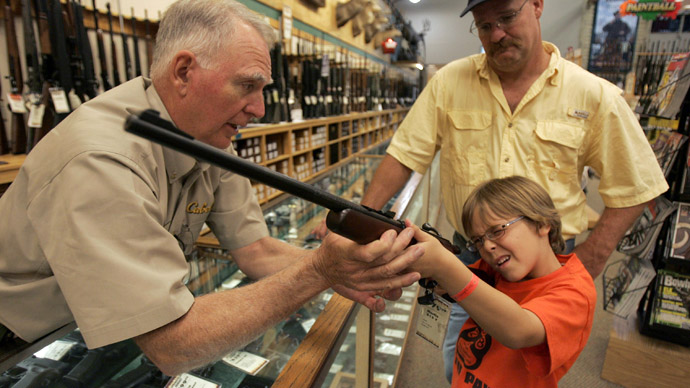American Gun Culture
Jump to navigation
Jump to search
An American Gun Culture is a gun culture that is an American culture.
- Example(s):
- See: American Exceptionalism, Gun Violence in The United States, Second Amendment to The United States Constitution, Gun Politics in The United States, Conservatism in The United States, Modern Liberalism in The United States.
References
2022
- (Wikipedia, 2022) ⇒ https://en.wikipedia.org/wiki/Gun_culture_in_the_United_States Retrieved:2022-5-25.
- In the United States, gun culture encompasses the behaviors, attitudes, and beliefs about firearms and their usage by civilians. Gun ownership in the United States is the highest in the world, and constitutionally protected by the Second Amendment to the United States Constitution. Firearms are widely used in the United States for self-defense, hunting, and recreational uses, such as target shooting.
Gun politics in the United States tends to be polarized between advocates of gun rights, often conservative, and those who support stricter gun control, often liberal.
The gun culture of the United States can be considered unique among developed countries in terms of the large number of firearms owned by civilians, generally permissive regulations, and high levels of gun violence.

- In the United States, gun culture encompasses the behaviors, attitudes, and beliefs about firearms and their usage by civilians. Gun ownership in the United States is the highest in the world, and constitutionally protected by the Second Amendment to the United States Constitution. Firearms are widely used in the United States for self-defense, hunting, and recreational uses, such as target shooting.
2022
- https://theguardian.com/us-news/2022/may/27/texas-shooting-nra-stifles-gun-regulations
- QUOTE: ... from a very young age, gun ownership becomes part of many people’s identity across the country. Families go hunting together. Fathers teach their children to shoot and how to be safe with firearms. ...
2022
- https://www.washingtonpost.com/opinions/2022/05/25/uvalde-shooting-nothing-will-change/
- QUOTE: ... We won’t do anything about this problem because we are not the land of the free and home of the brave that we think we are. We have that backward: America is the land of the fearful and trapped. We don’t feel our children are safe. We don’t think we can change this dreadful landscape. But we’ll watch politicians make speeches. We’ll see all the memes on social media and read all the opinion pieces from people like me. But, in the end, we’ll move on until there are new human sacrifices to make us forget about the old ones. ...
2017
- (Yamane, 2017) ⇒ David Yamane. (2017). “The Sociology of US Gun Culture.” Sociology compass 11, no. 7
- ABSTRACT: Despite the fact that a robust culture centered on the legal ownership and use of guns by law-abiding gun owners exists in the United States, there is no sociology of U.S. gun culture. Rather, the social scientific study of guns is dominated by criminological and epidemiological studies of gun violence. As a corrective to this oversight, I outline what a sociology of U.S. gun culture should look like. In the first section, I give a brief history of U.S. gun culture from the founding era through the 1960s. Guns began as tools of necessity in the colonies and on the frontier, but evolved into equipment for sport hunting and shooting, as well as desired commodities for collecting. The second section examines these recreational pursuits which formed the core of U.S. gun culture for most of the 20th century. Although recreation remains an important segment, the central emphasis of U.S. gun culture has gradually shifted to armed self-defense over the course of the past half-century. The third section examines the rise of this culture of armed citizenship, what I call “Gun Culture 2.0,” the current iteration of the country's historic gun culture. I conclude by suggesting important avenues for future research.

